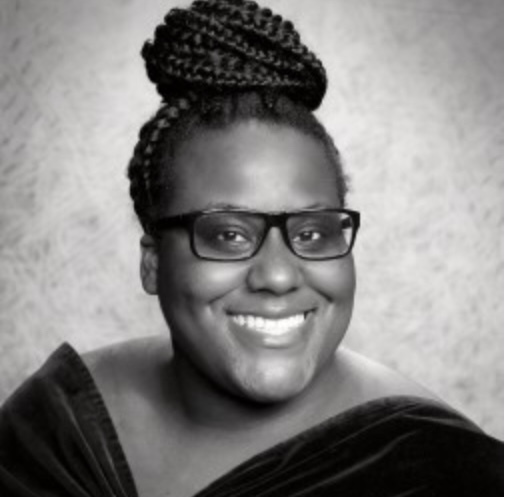
Andre’a Rhoads, Philadelphia’s new Youth Poet Laureate, says she wants to be “an advocate for peace, kindness, happiness and justice” through her writing. (Andre’a Rhoads/Free Library of Philadelphia)
An archdiocesan high school student has been recognized for her way with words – and for her belief in the power of language to create positive change.
Last month, Andre’a Rhoads, a rising senior at Little Flower Catholic High School for Girls, was named Philadelphia’s Youth Poet Laureate for the 2021-2022 academic year. The role, administered by the Free Library of Philadelphia and the New York-based arts organization Urban Word, honors teens who demonstrate artistic success, leadership, community engagement and social impact.
Through her nonstop writing and volunteer service, Rhoads does just that, and her new appointment will provide even greater opportunities to be “an advocate for peace, kindness, happiness and justice,” she said.
“Anything you write about is what you’re advocating for,” said Rhoads. “You give a voice to the community and to your neighborhood when others try to take it away.”
That voice began to emerge some seven years earlier, when Rhoads was a student at Gesu Elementary School in North Philadelphia.
“I started writing in fifth grade,” she said. “We were writing letters for one of the teachers who had died, and my letter got passed around to the (other) teachers.”
[hotblock]
Riveted by the emotionally charged text, Gesu faculty encouraged Rhoads to persist with her craft, but she initially disregarded the advice.
“They said I had a gift and I would be something,” she said. “But being young, that went in one ear and out the other.”
(Listen to Philadelphia Youth Poet Laureate Andre’a Rhoads recite her poem “Little Fires Everywhere.”)
An advanced writing class a few years later rekindled her interest, and by eighth grade Rhoads had penned her first poem.
Her work soon took on a “bolder and deeper” tone, she said, especially as she studied the poems of Maya Angelou, Emily Dickinson, Langston Hughes and the writers of the Harlem Renaissance, a flourishing of Black artistic expression in the iconic New York neighborhood from about 1918 to 1937.
Hughes – a leading figure in the Harlem Renaissance — remains her favorite, said Rhoads.
“He was actually the first poet I took the time to learn about and research,” she said, describing his work as “bold” and “raw.”
Rhoads was equally inspired by discovering that Hughes and his Harlem Renaissance contemporaries “went through a lot of things, writing in the Jim Crow era” yet still “gave Blacks a voice, and broadcast their creativity and talent.”
At the same time, she’s aware that poetry can be a challenging medium for the average reader.
“Not a lot of people like it, and I get it,” she said, while stressing that the possibilities for poets are endless.
“Racism, gun violence – they talk about so many different things; everything we’re going through in life,” she said. “I feel like I live for poetry and the spoken word.”
Rhoads – who admits she actually doesn’t have a formal writing process – often writes “for hours and hours on end,” and even finds it “really hard to stop” amid the stream of words.
“My writing takes me to a different place,” she said.
And she hopes to bring others there too, amid her duties as youth poet laureate, which include public readings and special projects.
“The whole purpose and point is to be active and spread joy and highlight the ideas that everyone is talking about,” she said. “I hope I can teach, reach, empower and just motivate others. I want to be an example that dreams can come true through prayer, working hard, a stable background and a strong community.”
***
From “Little Fires Everywhere” by Andre’a Rhoads
Put the fires away
And
Light the world up
With peace
Not destruction
Destroy them with kindness
Not give in
To their
Mindless
Behavior
Even our Savior
Stop the fires
In the land
And on His
Death cross
The Man
Asked for water
PREVIOUS: Visiting seminarians meet Philly’s homeless men ‘brother to brother’
NEXT: La Salle U. clears tuition balances for more than 100 students



Share this story